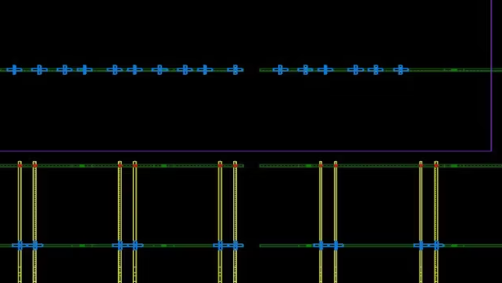SUNNYVALE, Calif. – October 5, 2011 — Crocus Technology, a leading developer of magnetic memory today announced a joint technology development agreement and a patent license agreement with IBM (NYSE: IBM). The patent license provides mutual access to patents that will enable the companies to collaborate and integrate magnetic technology into semiconductor products.
Under the technology agreement, Crocus and IBM will jointly develop semiconductor technology that combines Crocus’ thermally assisted next generation Magnetic-Logic-UnitTM (MLU) technology with IBM’s magneto-resistive random access memory (MRAM) technology and processing capabilities.
“This joint development and patent license agreement with Crocus furthers IBM’s long-standing commitment to enabling innovation through cooperation,” said William Gallagher, senior manager, Quantum Computing and Exploratory Magnetic Memories, IBM. “We look forward to collaborating with Crocus to further the development of advanced magnetic semiconductor technologies that can lead to increased function and performance in semiconductor products.”
MLU, first announced by Crocus in June 2011, is based on a revolutionary self-reference architecture. MLU is a scalable evolution of Crocus’ Thermally Assisted SwitchingTM (TAS) technology, and enables practical implementation of advanced magnetic logic and memory capabilities, a first for the industry. This innovation will expand the market for Crocus’ magnetic technology by opening up new applications in high density data storage, secure commerce and communications, high performance network processing and high temperature automotive and industrial uses.
IBM’s MRAM technology promises significant advantages over competing memory technologies including low power usage, high speed, unlimited endurance (read and write cycles), and inherent non-volatility meaning data can be retained even if power is discontinued. MRAM has the potential to enable “instant-on” computers and longer battery life for mobile computing devices.
“We are convinced that IBM’s leading materials expertise and semiconductor manufacturing capability combined with Crocus’ MLU innovation will enable the development of the most advanced MLU architecture in the mainstream semiconductor industry. This will allow us to offer our customers the highest quality, cost effective solutions for their strategic initiatives,” said Dr. Bertrand F. Cambou, executive chairman of Crocus Technology.
Crocus plans to deploy the process technology resulting from the joint development at its manufacturing venture, Crocus Nano Electronics (CNE).
Additional details of the agreements will not be disclosed.
About Crocus Technology
Crocus is a leading developer of magnetic semiconductor technology for dense, non-volatile, high-speed, scalable chip solutions used in general and special purpose applications. The company’s Magnetic Logic UnitTM (MLU) architecture, featuring a revolutionary self-reference technique, is a scalable evolution of Crocus’ patented Thermally Assisted SwitchingTM (TAS) technology. MLU enables practical implementation of advanced magnetic logic and memory capabilities. The company will offer discrete, high density memory chips that target a wide variety of telecommunication, networking, storage, computing and handheld applications. The company also licenses its technology for both standalone and embedded chip applications. Crocus’ technology is covered by a comprehensive patent portfolio. In May 2011, Crocus and RUSNANO formed a joint venture, Crocus Nano Electronics (CNE), to build and operate an advanced manufacturing facility for magnetic semiconductors. Find Crocus at: www.crocus-technology.com.




